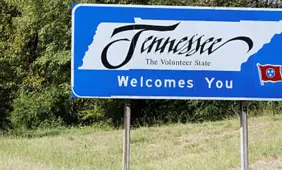Pan-Nordic Gambling Study Begins Data Collection Across Denmark, Finland, Norway and Sweden
A Pan‑Nordic gambling study has begun collecting data in Denmark, Finland, Norway and Sweden.

Fieldwork is under way for the Pan‑Nordic Gambling Study (PANG), a coordinated research effort that will invite 30,000 randomly selected residents in each of the four countries to take part, for a combined sample size of 150,000 people. The organisers say the survey is designed to produce comparable, cross‑national data on gambling participation, problem gambling prevalence, engagement with licensed and unlicensed operators, and links between gambling and public health.
Data collection started this month, with results scheduled for publication in a joint report in spring 2026. Project leads frame the study as an attempt to create a shared evidence base for regulators, health services and policy makers across a region where gambling frameworks range from fully liberalised online markets to state monopolies.
The four Nordic markets differ sharply. Denmark introduced its regulated online gambling framework in 2012 and has a competitive licensed sector. Sweden opened its regulated online market in 2019. By contrast, Finland and Norway continue to operate state monopolies: Finland’s incumbent monopoly operator Veikkaus is expected to face market liberalisation under the Finnish Gambling Act reforms planned for completion by 2027, while Norway maintains gambling operations through Norsk Tipping and the horse‑racing betting operator Norsk Rikstoto.
Project organisers say the PANG study will enable direct comparisons of how those regulatory models affect consumer behaviour, the reach of unlicensed offerings and the incidence of gambling harms. That comparative perspective is relatively rare in Europe, where most prevalence research is conducted on a country‑by‑country basis and methods and question wording often prevent direct comparison.
"This study will provide a basis for assessing gambling and gambling problems in the Nordic countries", said Maria Vinberg, an investigator at the Swedish gambling regulator Spelinspektionen. "We are particularly keen to see how patterns of participation vary between regulated and unregulated markets, and how those patterns correlate with measures of health, social well‑being and access to treatment. Few regions have been able to run coordinated studies at this scale, and the results should help us target prevention and support more effectively."
More Regulation
What This Means for Regulators and Operators
Researchers and industry observers expect the data to inform several policy debates. For regulators, the study could clarify whether tighter market control is associated with lower problem gambling rates or whether online availability under a regulated model creates different risk profiles. For operators, both licensed and unlicensed, the findings may illuminate consumer preferences across verticals such as sports betting, online casino games and lotteries.
Dr. Helena Jensen, a public‑health researcher specialising in addictive behaviours at the University of Oslo, welcomed the scale of the project but cautioned about interpretation. "Large, harmonised surveys like this are invaluable, but they come with measurement challenges", she said. "Differences in response rates, willingness to report problematic behaviour and the difficulty of capturing activity on unlicensed platforms can complicate cross‑national comparisons. Results should be read alongside administrative and treatment data, not in isolation."
Experts also note practical uses beyond immediate policy. Comparable prevalence figures can help public‑health agencies allocate resources, guide licensing conditions, and inform consumer‑protection measures such as affordability checks, self‑exclusion systems and advertising limits. For countries contemplating reform, notably Finland as it moves toward a liberalised online market, the PANG results will offer empirical evidence to weigh expected benefits against potential harms.
Organisers emphasise transparency in methodology and said they will publish full survey instruments and sampling procedures alongside the main report. That openness is intended to enable independent researchers to replicate analyses, test alternative hypotheses and develop longitudinal follow‑ups that track market shifts after regulatory changes.
RELATED TOPICS: Regulation
Most Read
Must Read
 Interviews
Interviews
Exclusive Interview: Levon Nikoghosyan Shares AffPapa Winning Formula for Successful iGaming Events
Dec 03, 2025 Interviews
Interviews






Review this New Post
Leave a Comment
User Comments
Comments for Pan-Nordic Gambling Study Begins Data Collection Across Denmark, Finland, Norway and Sweden